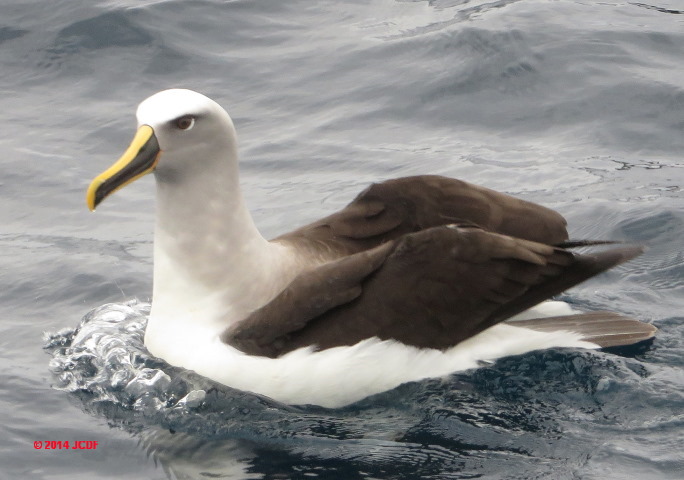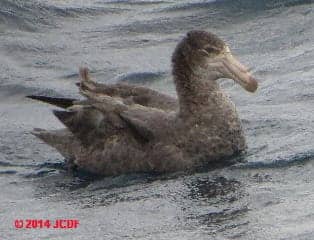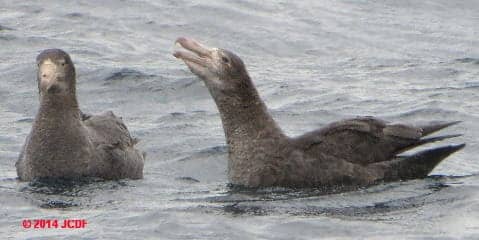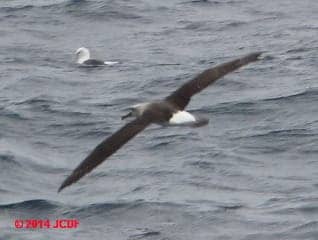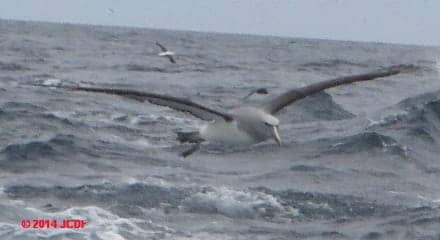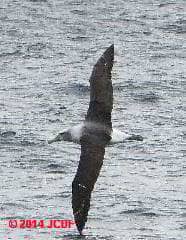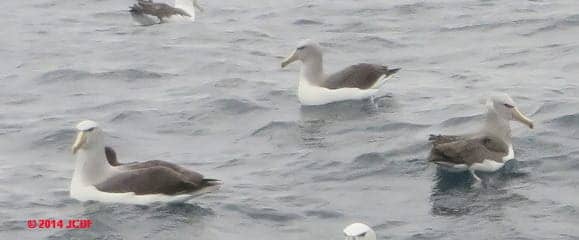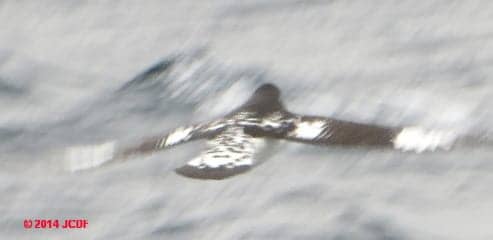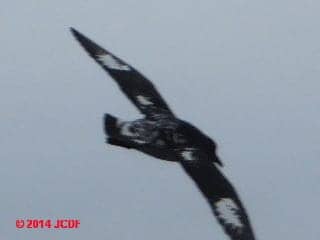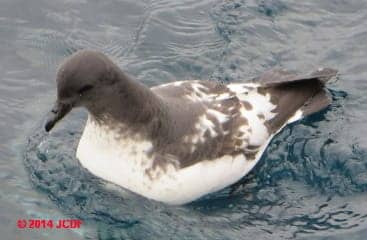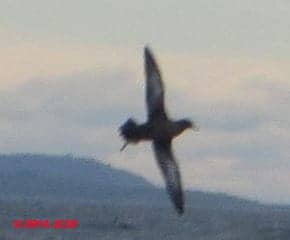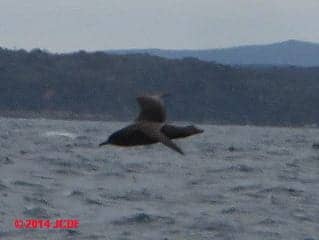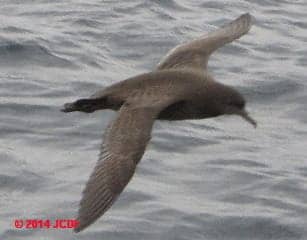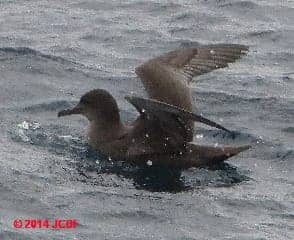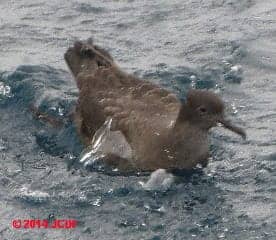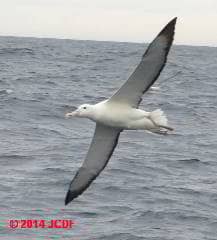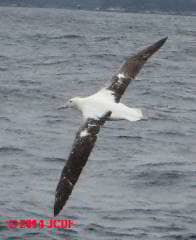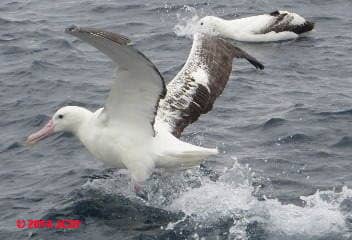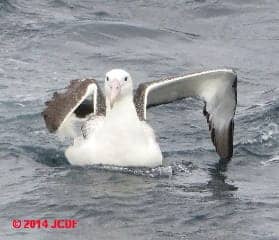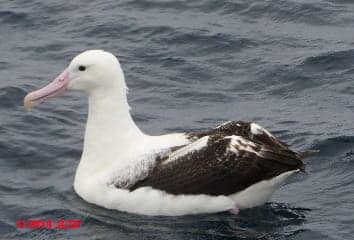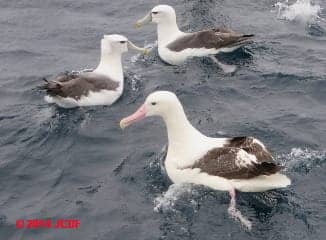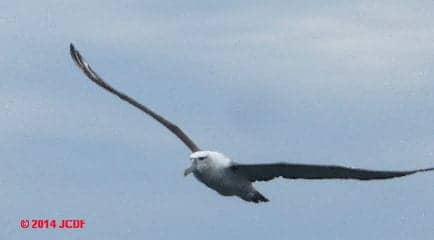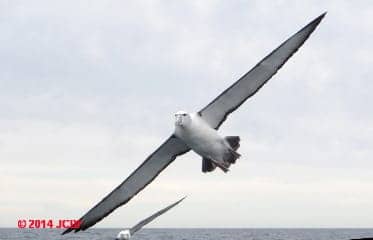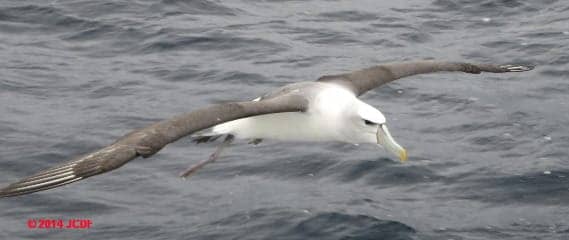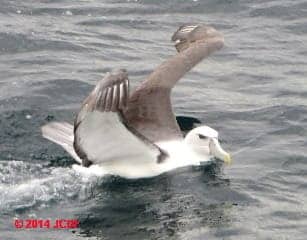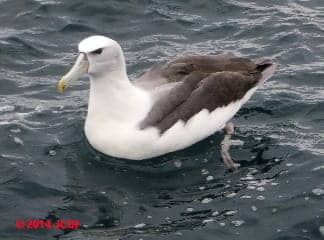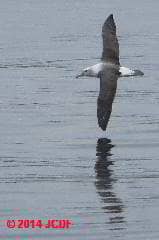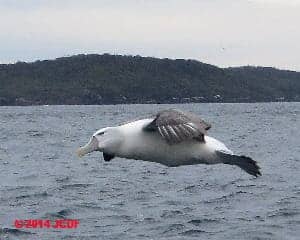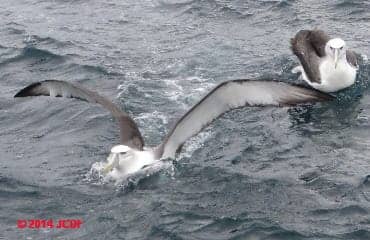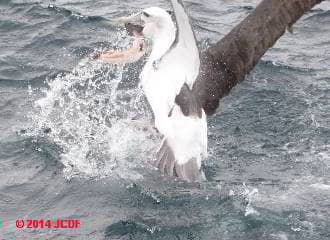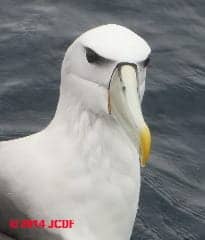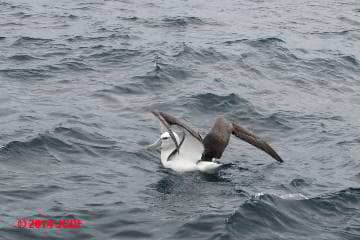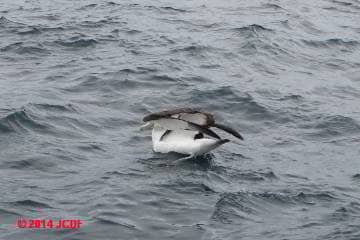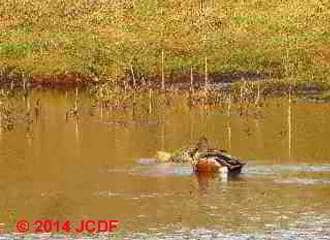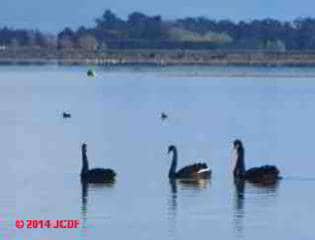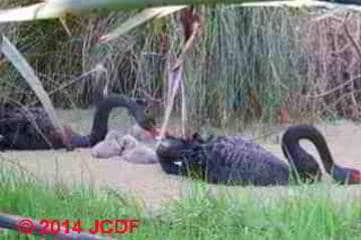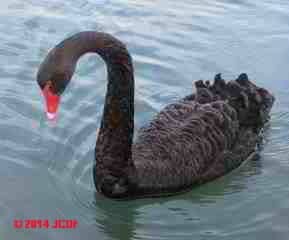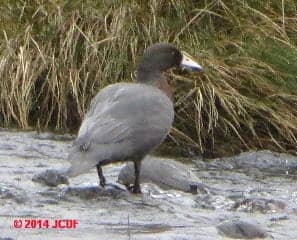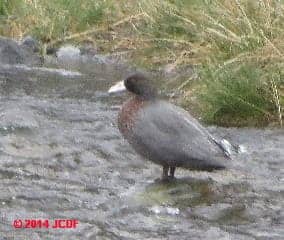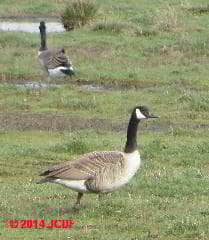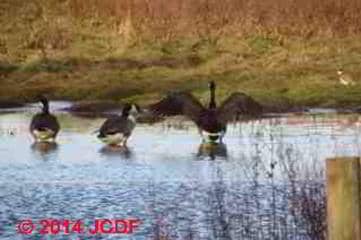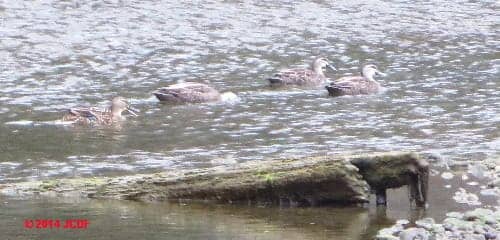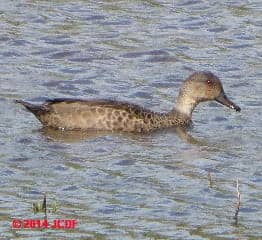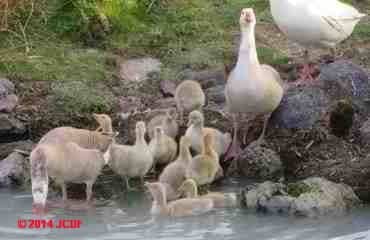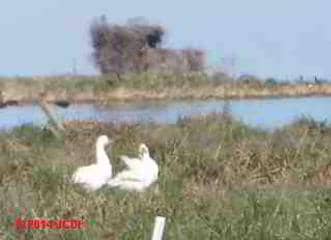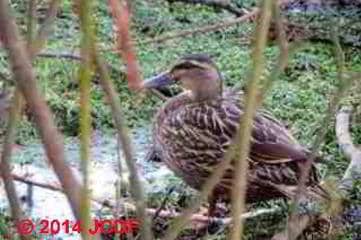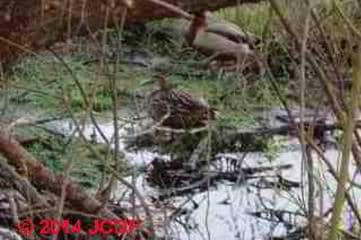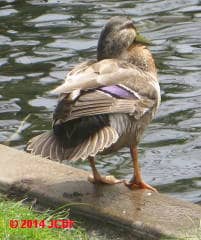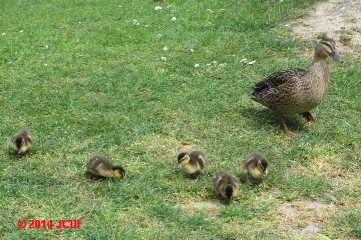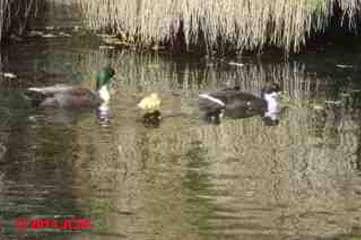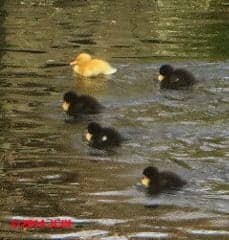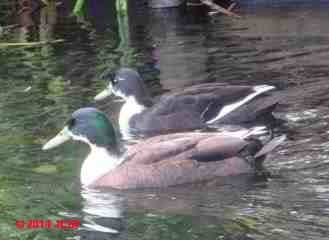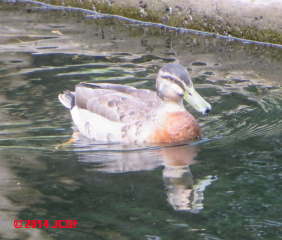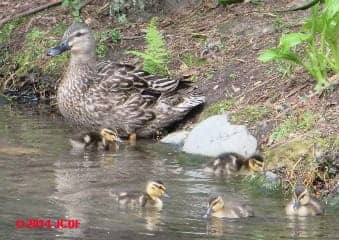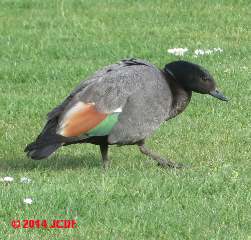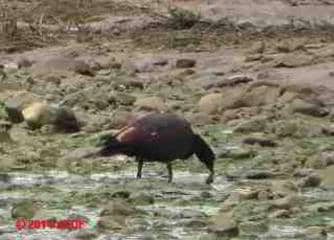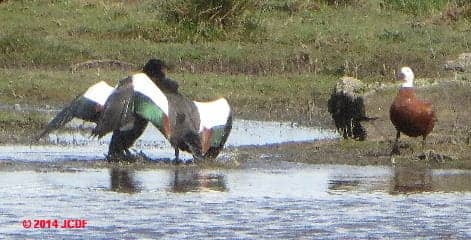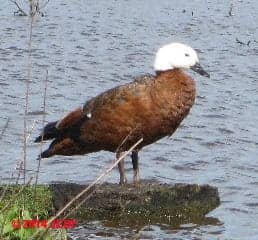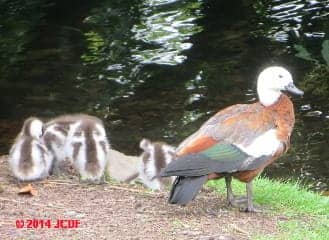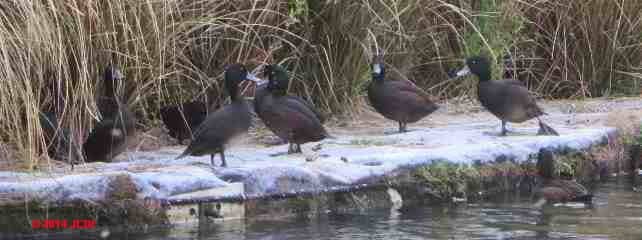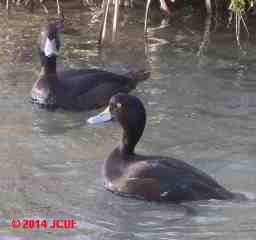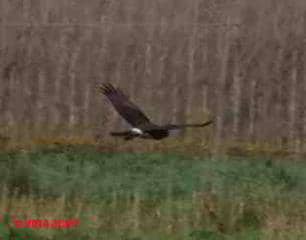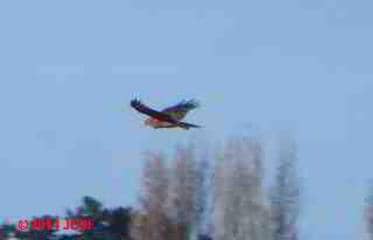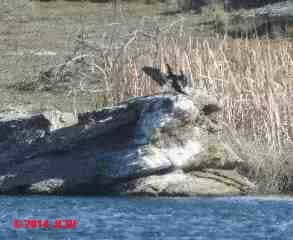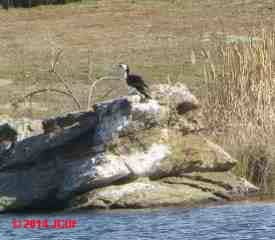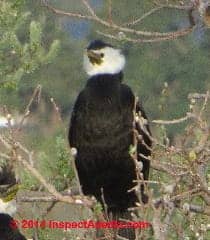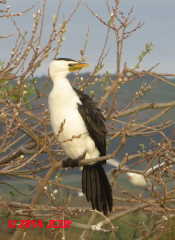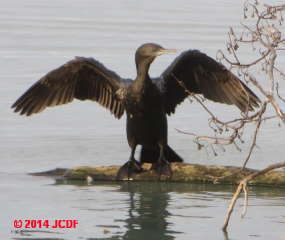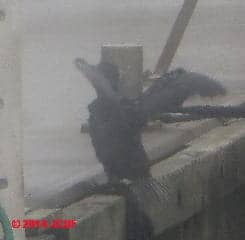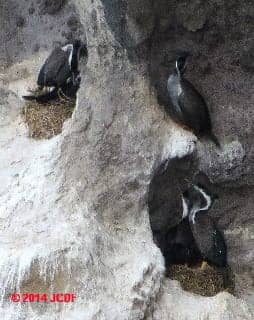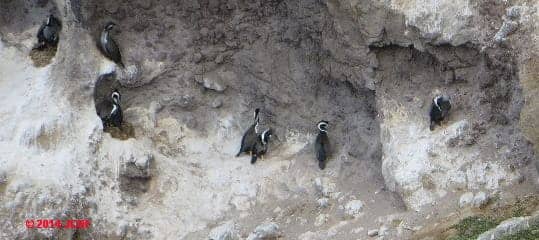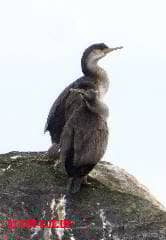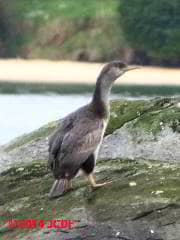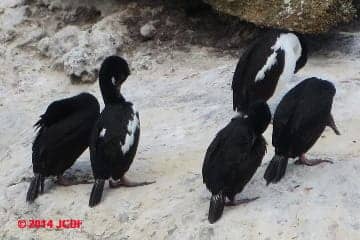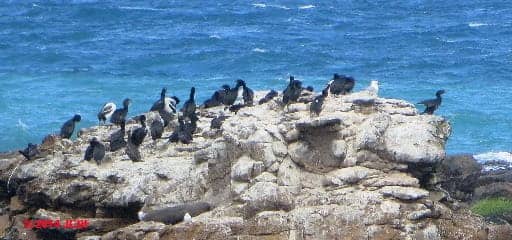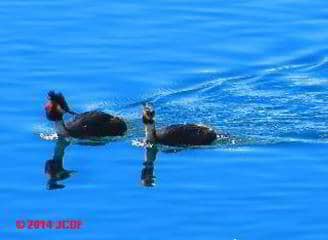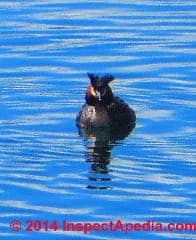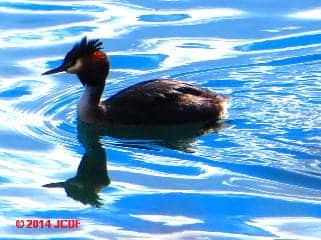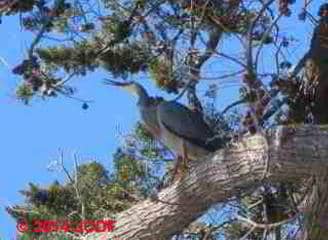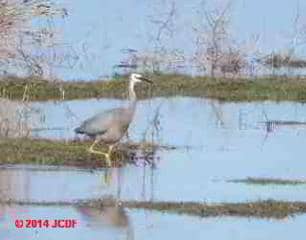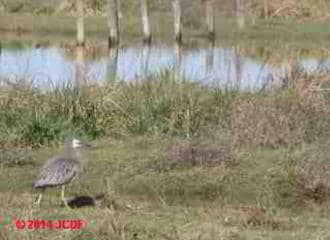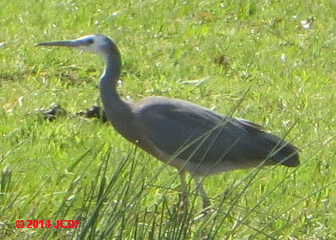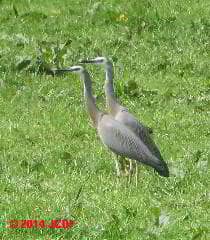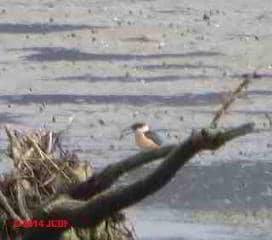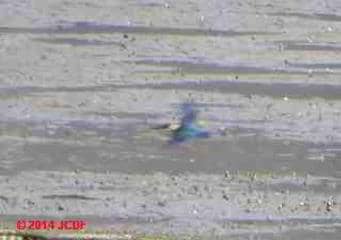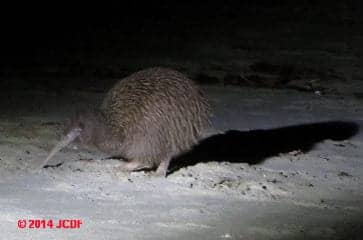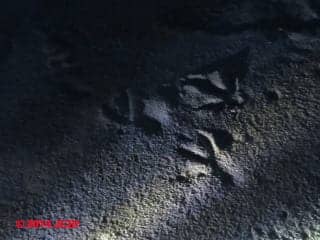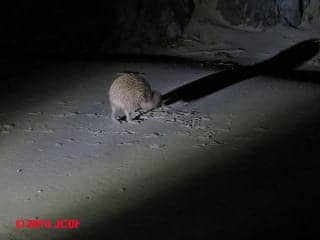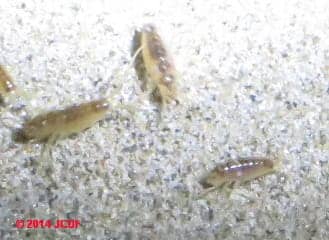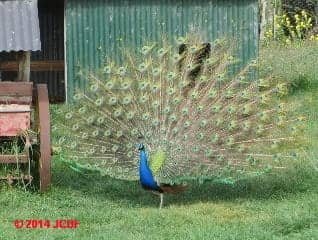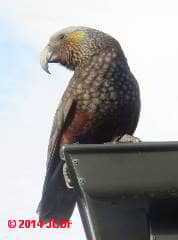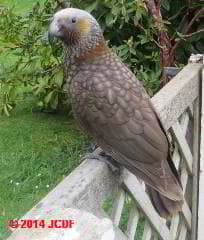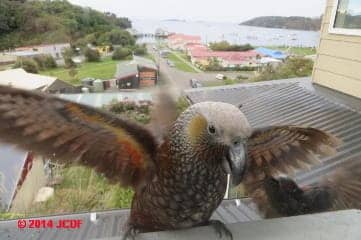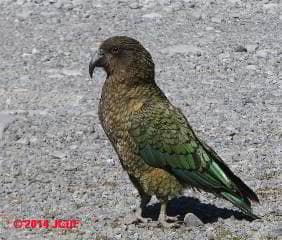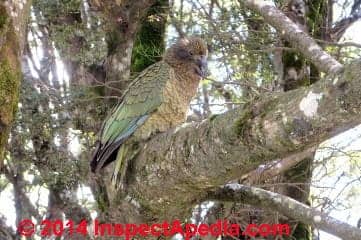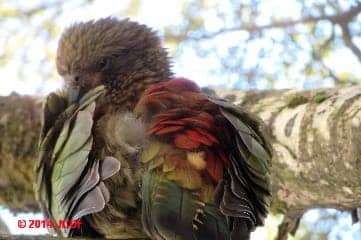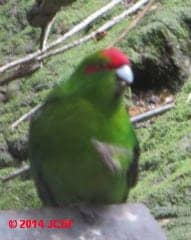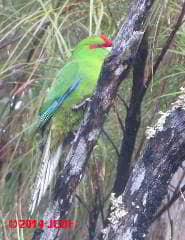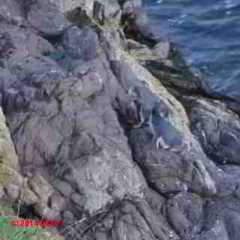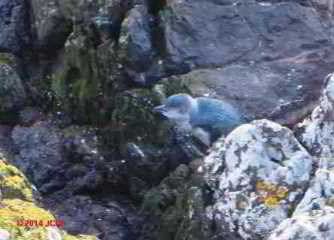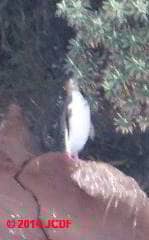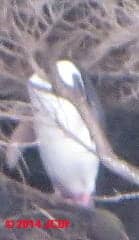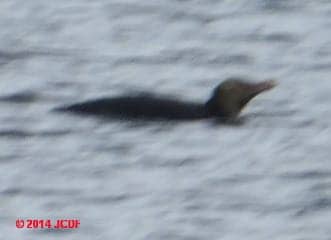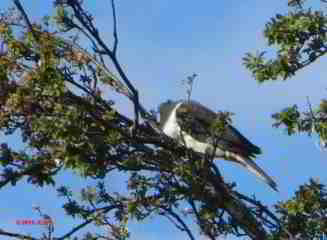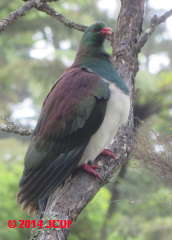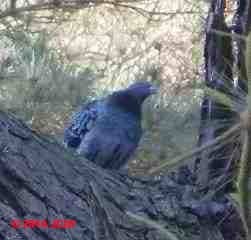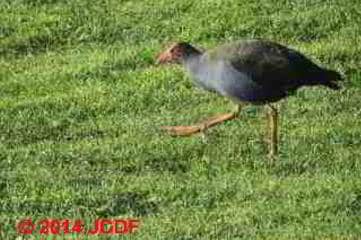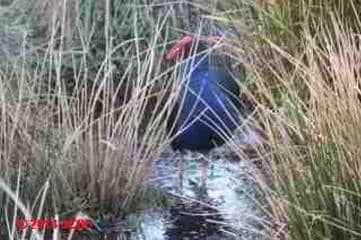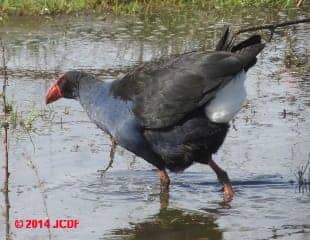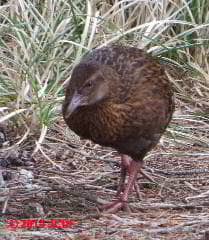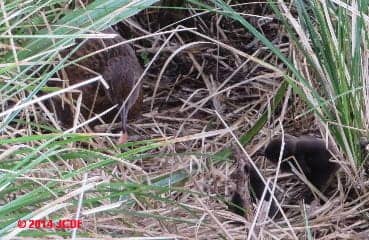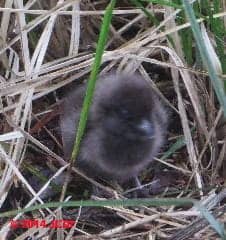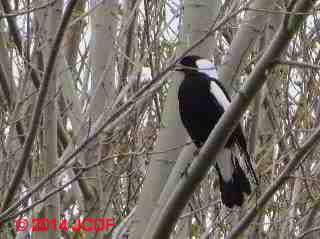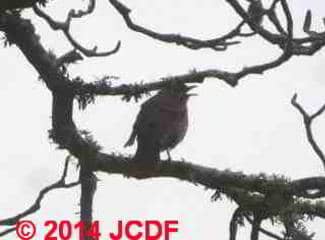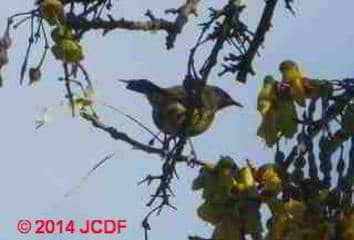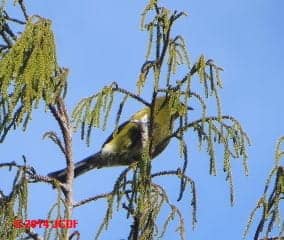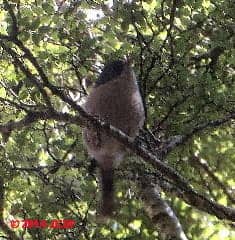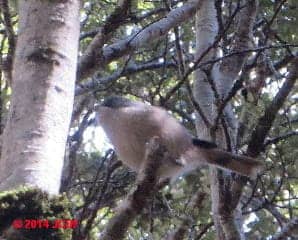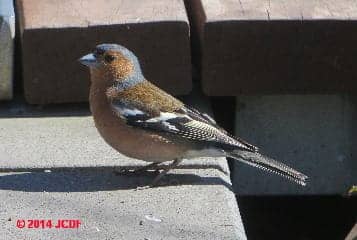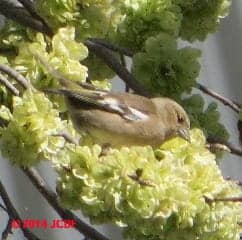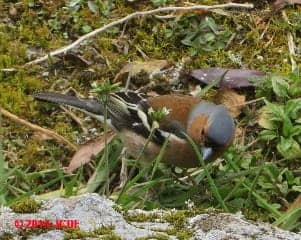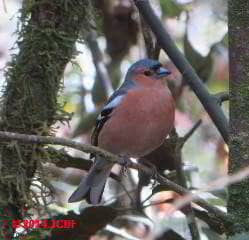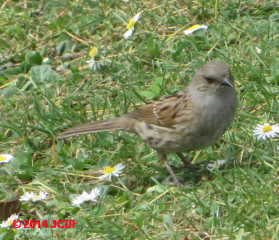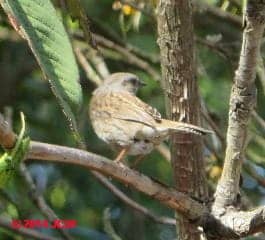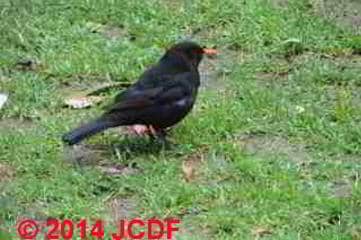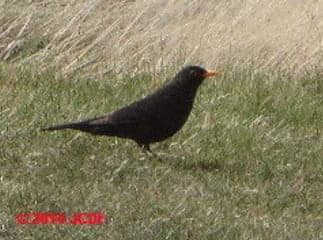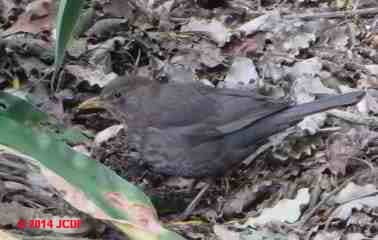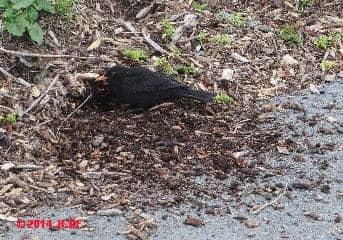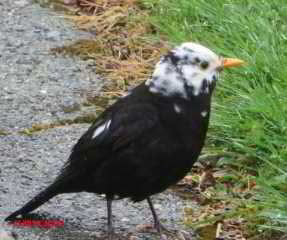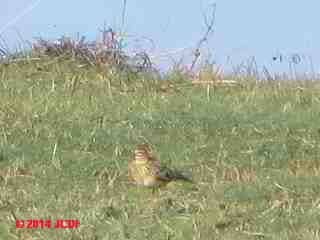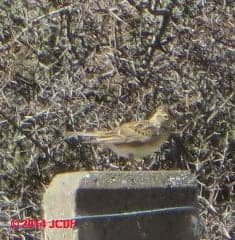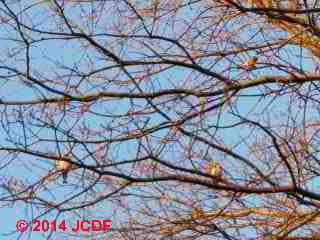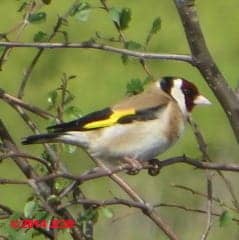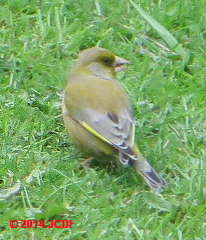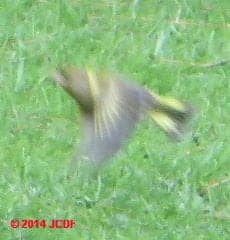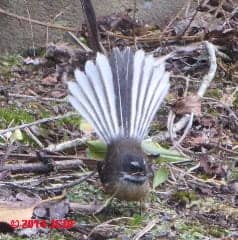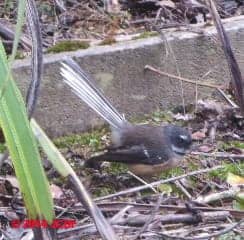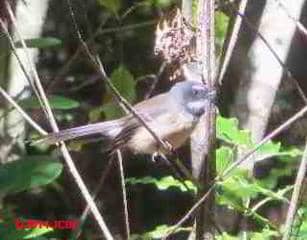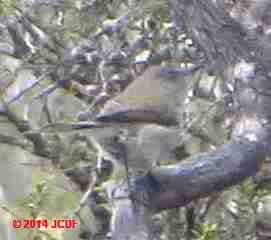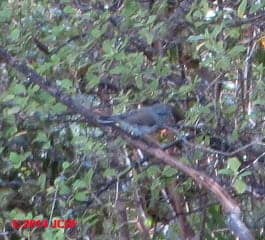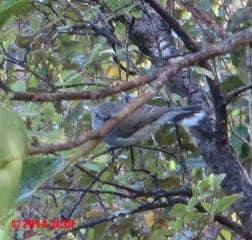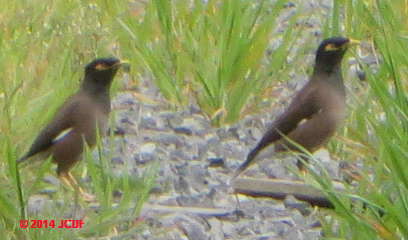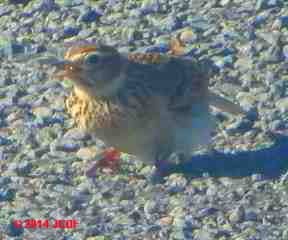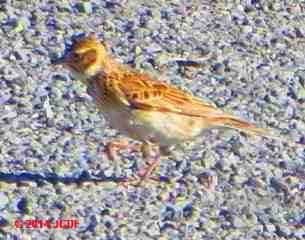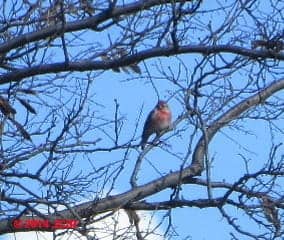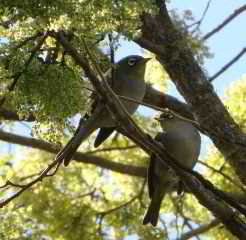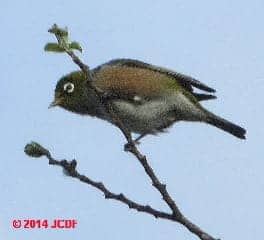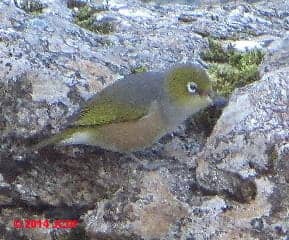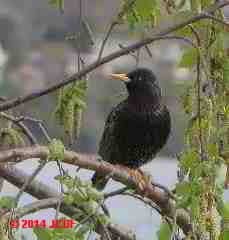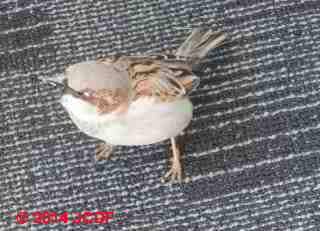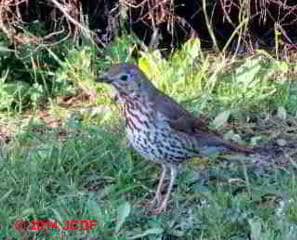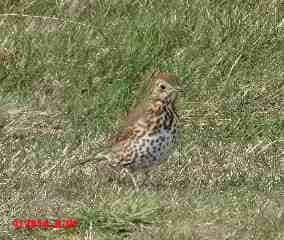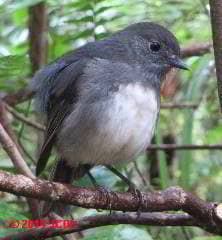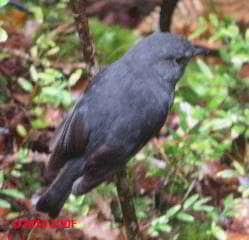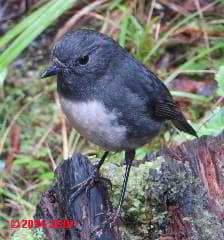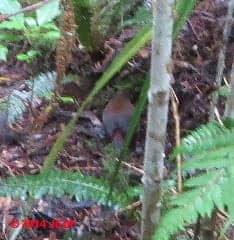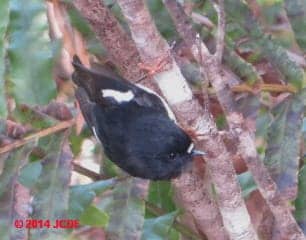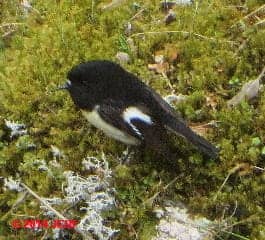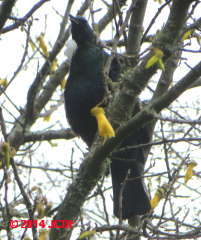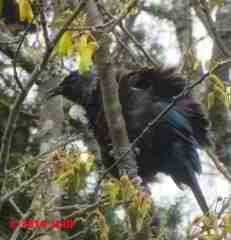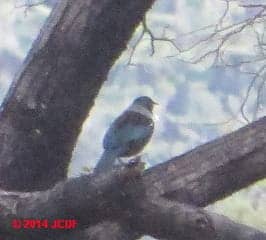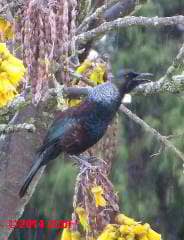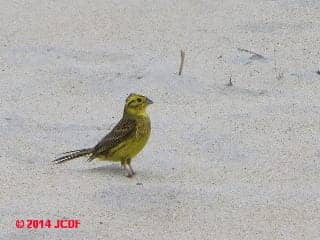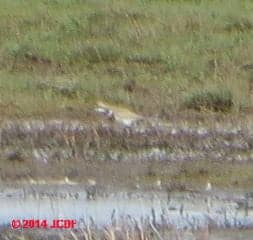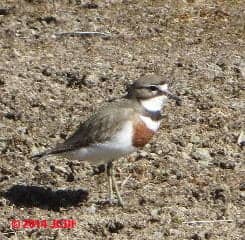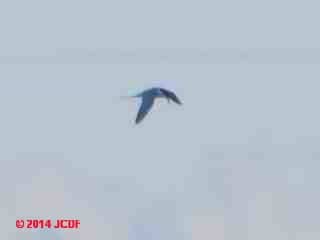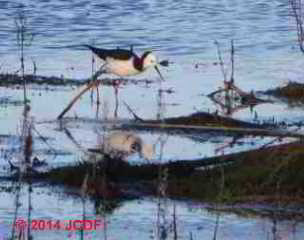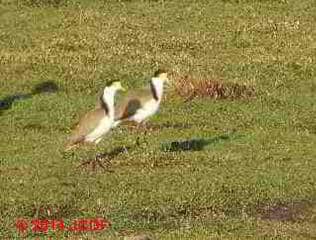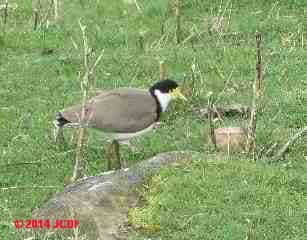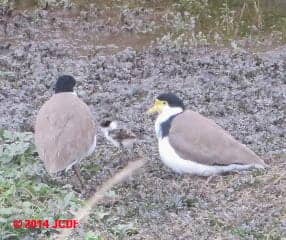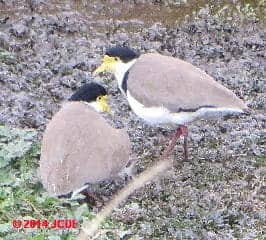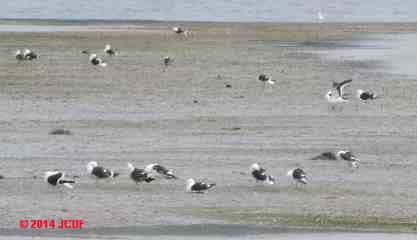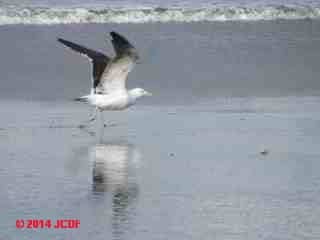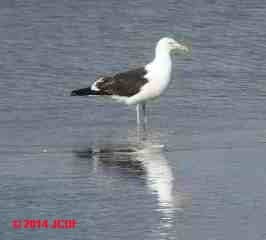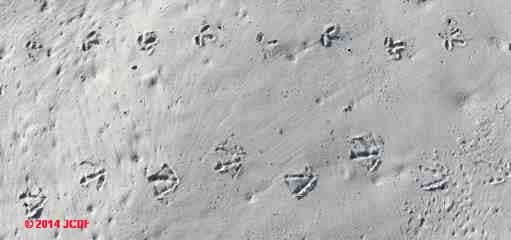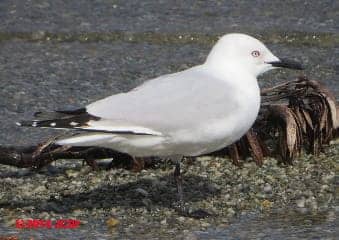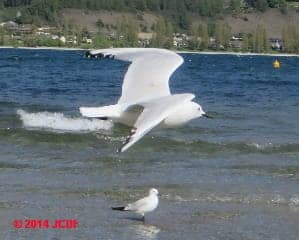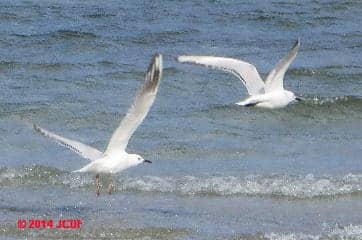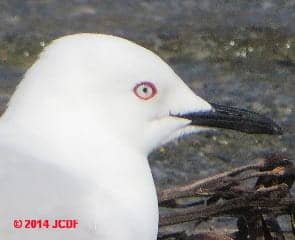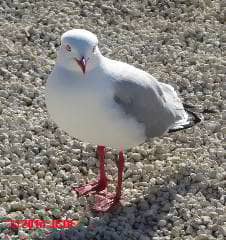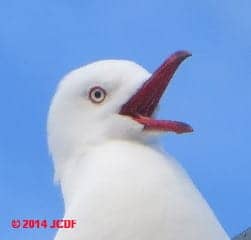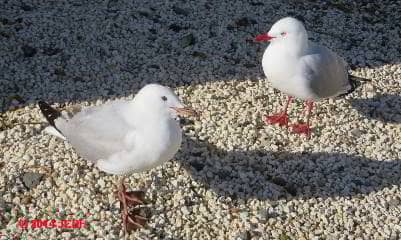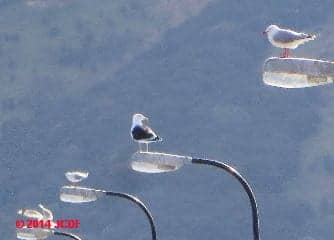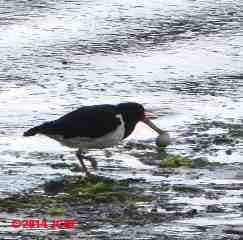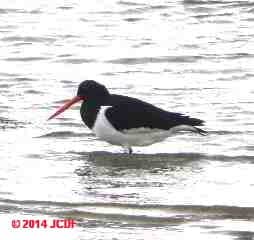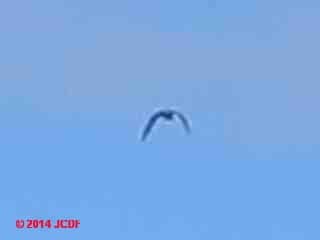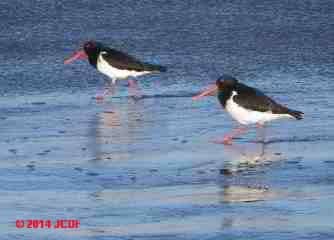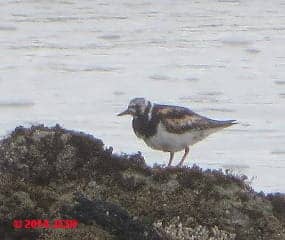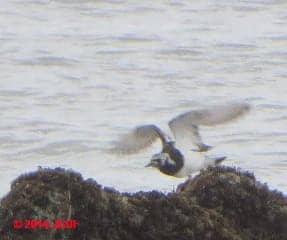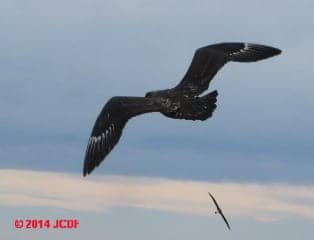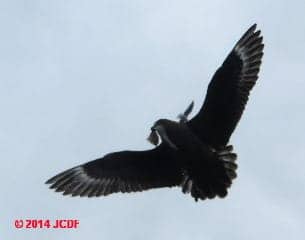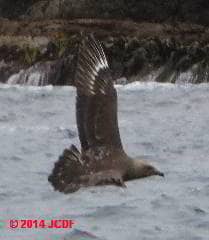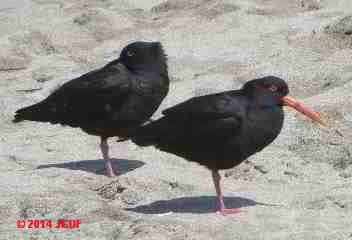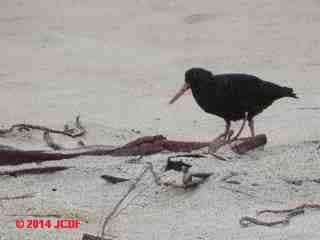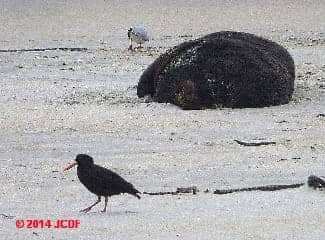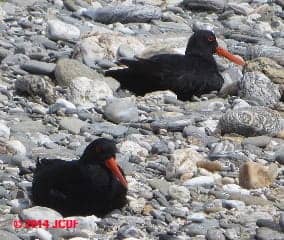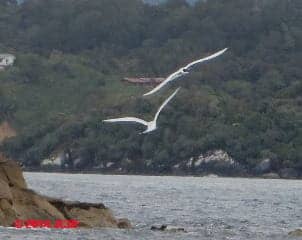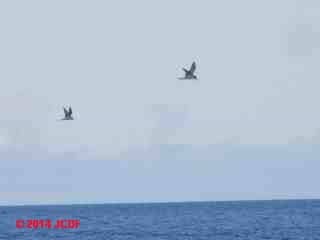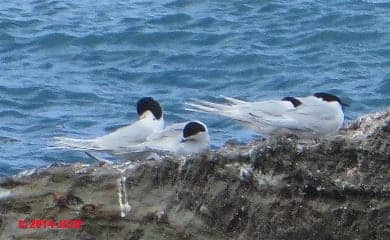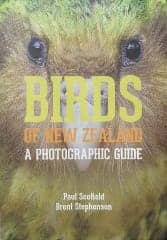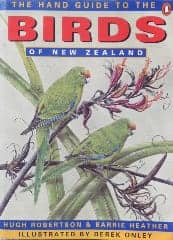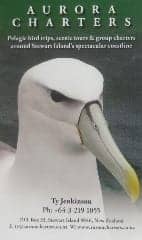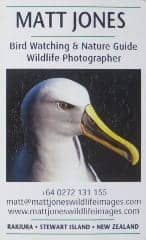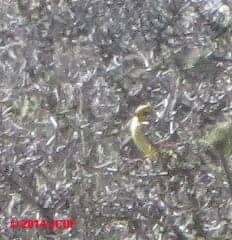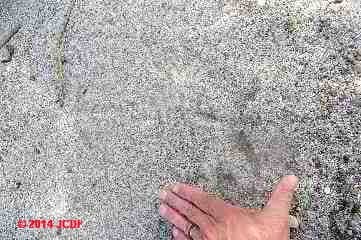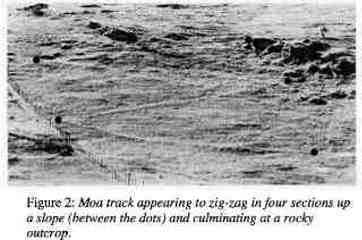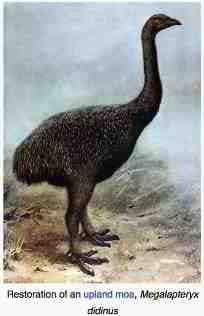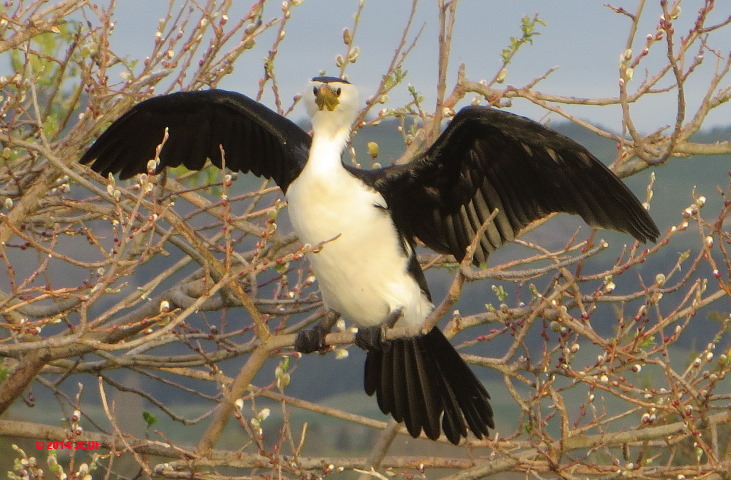 New Zealand Birds
New Zealand Birds
North Island & South Island Birding 2014
- POST a QUESTION or COMMENT about bird watching in NZ
This article describes and offers field photographs of birds observed in New Zealand in September & October 2014.
As indicated in the text below some of these birds are found only on North Island, some others on South Island, and some only on Stewart Island or at sea off the coast of New Zealand.
These New Zealand bird photographs are by no means a compelte catalog of the country's birds (see the book references and birding tour suggestions at the end of this article) and our photos are not salon images but rather pictures made to document the birds we were fortunate to observe during a 2014 New Zealand visit.
InspectAPedia tolerates no conflicts of interest. We have no relationship with advertisers, products, or services discussed at this website.
- Daniel Friedman, Publisher/Editor/Author - See WHO ARE WE?
Bird List: Observations on South Island, New Zealand 2014
- Albatrosses, Mollymawks, Shearwaters & Petrels - Tubenosed Seabirds
- Buller's Mollymawk
- Common Diving Petrel [see Cape Petrel]
- Fairy Prion
- Northern Giant Petrel
- Salvin's Mollymawk
- Snare's Cape Petrel
- Sooty Shearwater
- Southern Royal Albatross
- White-capped Mollymawk / White-Capped Albatross
- White-chinned Petrel
- White-faced Storm Petrel
- Ducks, Geese & Swans
- Australian Coot
- Australasian Shoveler
- Black Swan
- Blue Duck
- Canada Goose
- Grey Duck
- Grey Teal
- Greylag Goose / Feral Goose
- Mallard
- Mallard-Gray Duck hybrid & white chested variation
- New Zealand Scaup
- Paradise Shelduck
- Eagles, Hawks, and Allies
- Australasian / Swamp Harrier
- Gannets, Boobies, Shags and Allies
- Black Shag
- Gannett
- Little Shag
- Little Black Shag
- Pied Shag
- Spotted Shag
- Stewart Island Shag
- Grebes
- Australasian / Great Crested Grebe
- Herons, Ibis, and Spoonbills
- Cattle egret
- White faced heron
- Kingfishers and Rollers
- Sacred Kingfisher
- Kiwis
- Owls
- Morepork (ruru) (heard, not seen, Kiwi Tour)
- Partridges, Quails, Pheasants
- Parrots
- Penguins
- Blue Penguin
- Blue Penguin White-flipper sub-species
- Fiordland Crested Penguin
- Yellow-eyed Penguin
- Pigeons and Doves
- New Zealand Pigeon
- Rock Pigeon / Dove
- Rails and Cranes
- Songbirds
- Australian Magpie
- Bellbird
- Brown creeper
- Common Chaffinch
- Dunnock
- Eurasian Blackbird
- Eurasian Skylark
- European Goldfinch
- European Greenfinch
- Fantail
- Grey Warbler
- House Sparrow
- Myna
- New Zealand Pipit
- Redpoll
- Rifleman
- Starling
- Silvereye
- Song Thrush
- South Island Robin / Stewart Island Robin
- South Island Saddleback
- Tomtit, New Zealand South Island
- Tui
- Welcome Swallow
- Yellowhead
- Yellowhammer
- Waders, Gulls and Terns
- New Zealand Bird Book Recommendations
- New Zealand Birding Tour Recommendations
- Comments & Identification pending
Albatrosses, Mollymawks, Shearwaters, Petrels
Buller's Mollymawk / Buller's Albatross, Northern Buller's Albatross (Toroa) Thalassarche bulleri bulleri off Stewart Island, NZ, Latitude 47.0.0 South.
[Click to enlarge any image]
Northern Giant Petrel (Panguruguru) Macronectes halli, off Stewart Island NZ
Salvin's Mollymawk (Toroa) Thalassarche salvini, off Stewart Island NZ, critically endangered species
Snare's Cape Petrel / Cape Pigeon / Pintado Petrel Daption capense australae, off Stewart Island NZ. At above left is probably the Cape Petrel Daption capense capense, an Antarctic Cape Petrel that visits New Zealand in winters, while at above right is most likely the New Zealand subspecies Daption capense australae. Below, Cape Petrel afloat off of Stewart Island.
Sooty Shearwater (Titi, Hakekeke), Muttonbird Puffinus griseus, off Stewart Island
Southern Royal Albatross (Toroa) Diomedeaepomophora, off Stewart Island, New Zealand (above). The third photo below compares the Southern Royal Albatross (foreground) with the smaller White-capped Albatross.
White-capped Mollymawk (White-capped Albatross) Thalassarche cauta steadi, off Stewart Island, New Zealand.
Below, White-capped Albatross in flight. The gray back separates this from all other mollymawks outside the Shy group.
Below you can see the tri-fold procedure by which the White-capped Albatross (Mollymawk) folds its huge wings.
Ducks, Geese, & Swans
[no photo]
Australian Coot Fulica atra, Christchurch park, Canterburn NZ.
Australasian Shoveler (Kuruwhengi) Anas rhynchotis, Travis Reserve Wetlands, Christchurch.
[Click to enlarge any image]
Black swans Cygnus atratus, Lake Ellesmere flats; Black swan pair with cygnets, Travis Reserve, widespread: Inland lakes, Otago peninsula, also Lake Rotorua (below). Common Australian introduction to New Zealand.
Blue Duck (Whio) Hymenolaimus malacorhynchos, enroute to Milford Sound. The second duck in this breeding pair at above left illustrates how the duck resembles a gray river rock when feeding with its head below water.
Canada Goose Branta canadensis Travis Reserve & Lake Ellesmere Flats, South Island, New Zealand, common North American introduction to New Zealand.
Grey Duck (Parera) Anas superciliosa. Above, Grey Ducks at Milford Sound.
Grey Teal (Tete) Anas gracilis, Travis Reserve, Canterbury.
Greylag / Feral Goose Anser anser Lake Rotorua (above left), Males, Lake Ellesmere flats (above right). Common European introduction into New Zealand.
Mallard Anas platyrhynchos / Grey Duck (Parera) Anas superciliosa. Original New Zealand Grey Duck very rare now: mostly hybred with introduced Mallard. Shown at Travis Reserve (above) & U. Canterbury campus (below).
Unusual Mallard / Grey Duck variations, U. Canterbury campus streams.
Above: Grey Duck - Mallard with markings more in the Grey Duck direction, with ducklings, Christchurch Botannical Gardens, Canterbury NZ
Paradise Shelduck (Putangitangi) Tadorna variegata, Travis Reserve (above left), Christchurch city park, male at Ellesmere Lake Flats (above right). Below at Travis Reserve male Paradise Shelducks squabbling while a female keeps score.
Above: Paradise Shelduck female with ducklings, Christchurch Botannical Gardens, Canterbury NZ
Scaup, New Zealand (Papango), Aythya novaeseelandiae (uncommon, endemic), observed on North Island at Lake Rotorua.
[Click to enlarge any image]
Eagles, Hawks, and Allies
[Click to enlarge any image]
Australasian Harrier (Kahu) aka Swamp Harrier, Circus approximans, Travis Reserve; road to Hanmer Springs; also close up on Summit Road above Akaroa, frequent in early AM or late PM.
Gannets, Boobies, Shags and Allies
[No Photo]
Black Shag / Great Cormorant / Large Black Shagh (Kawau tuawhenua) Phalacrocorax carbo at Lake Lyndon and at Travis Reserve, Christchurch NZ.
Little Shag (Kawaupaka) Phalacrocorax melanoleucos. Some texts refer to this bird as Little Pied Shag (distinct from Pied Shag (larger) and from Little Black Shag (all black, lead gray bill)). Above, at the Banks Peninsula, Flat Top Hill, also seen at Lake Ellesmere flats (flying), South Island, New Zealand.
Below, Little Shags at Motutara Point, Lake Rotorua, North Island, in three colour phases from black to pied. Below these we incude a Little Shag juvenile. [Click to enlarge any image]
Little Shag, Juvenile (above), Motutara Point, Lake Rotorua, North Island, New Zealand.
Little Black Shag Phalacrocorax sulcirostris, Picton Docks.
Pied Shag (Karuhiruhi) Phalacrocorax varius, NE coast of South Island, NZ, from Kiwi coastal train.
Spotted Shag (Parekareka) Stictocarbo punctatus, nesting, Pilots Beach, cliffs of Otego Peninsula. Below: adult (below left) and juvenile (below right) Spotted Shag on Stewart Island.
Stewart Island Shag (Mapua) / Stewart Cormorant, Bronze Shag Leucocarbo chalconotus, Stewart Island Shags facing the wind at Shag Point, east coast of South Island South of Omaru, North of Dunedin.
Grebes
Australasian / Great Crested Grebe (Puteketeke) Podiceps cristatus, Bendigo Point north of Cromwell, also Otira Gorge, Arthur's Pass, Lake Lyndon and at Pearson Lake.
Herons, Ibis, and Spoonbills
[no photo]
Cattle egret Bublcus ibis, highway to Banks Peninsula.
White-faced heron Ardea novaehollandiae, Taylor’s Mistake, Christchurch and Akaroa bay, Banks Peninsula.
Above left does not look like an adult White Faced Heron. Possibly a juvenile. Check the back feathers. In Akaroa NZ. Above right, White Faced Heron at Tairua, North Island, New Zealand. Below, White faced herons at Franz Josef glacier area, Westland NZ.
Kingfishers and Rollers
Sacred Kingfisher (Kotare) Halcyon sancta, Akaroa bay, Banks Peninsula, Christchurch, Canterbury, New Zealand.
Kiwis
Stewart Island Brown Kiwi (Tokoeka, Tokoweka) Apateryx australis, endemic, Stewart Island night walk. At below right: Kiwi snacks.
Owls
Morepork (ruru) Ninox novaeseelaniae novaeseelandiae (heard, not seen, Kiwi Tour).
Partridges, Quails, Pheasants
California Quail Callipepla californica, common North American introduction, Marlboro Sound, at Lochmara.
Peacock / Indian Peafowl, Common Peafowl, Peahen (Pikake, Pikao) Pavo cristatus, near Taupo and at Riverstone Kitchen restaurant, Omaru NZ (above).
Parrots
New Zealand Kaka Nestor meridonalis, on Stewart Island & Ulva Island, New Zealand.
Kea Nestor notabilis, Arthurs Pass, South Island, New Zealand
Red-Crowned Parakeet (Kakariki) / New Zealand Parakeet Cyanoramphus novaezelandiae, Lochmara (caged, breeding program, above left), Lochmara, Marlboro Sound, Stewart Island & Ulva Island (above right).
Penguins
Blue Penguin (Korora) Eudyptula minor, and White-flipper sub-species, Flea Bay of Banks Peninsula, Pohatu penguin colony. Below: raft of blue penguins swimming off of Stewart Island.
Rock hopping little Blue Penguin night-video
Our white-flippered little blue penguin movie provided just below was filmed by telephoto lens at 20x at nightfall near Akaroa, New Zealand. This blue penguin rock hopping video is hosted at YouTube. Visitors to this blue penguin colony wear camouflage clothing and keep a considerable distance from the penguins themselves so as not to disturb the animals. Though you hear some of the humans chattering in the background that noise was nowhere near the penguins themselves.
This blue penguin film clip shows the little blues as they hop up the steep rock face at Flea Bay on the Banks Peninsula, near Akaroa, New Zealand.
The penguins begin to come ashore at nightfall and are nesting in this protected area. The blue penguins found here are a white-flippered sub species of blue penguin that have been under protection for more than a decade. Recently this blue penguin colony's population has been increasing at about 5-7% a year from its low of an estimated 800 and presently stands at about 1200.
[No Photo]
Fiordland Crested Penguin at Milford Sound
Yellow-eyed Penguin (Hoiho) Megadyptes antipodes, Stewart Island. Above right, Yellow-eyed penguin swimming off Ulva Island.
Pigeons and Doves
New Zealand Pigeon (Kereru, Kukupa, Parea) Hemiphaga novaeseelandiae, Akaroa, Banks Peninsula (above left) & again at above right another New Zealand pigeon at Tauranga, North Island, New Zealand.
Rock (Feral) Pigeon Columbia livia, common European introduction, at Woodend Beach, Canterbury NZ.
Rails and Cranes
Pukeko (Purple Swamphen) Porphyrio porphyrio, Travis Reserve Wetlands, Christchurch, New Zealand, ubiquitous.
Stewart Island Weka (Maori hen) Gallirallus australis scotti, female (above left) on Ulva Island. Above right, male Weka using clucks and a tidbit to entice his chicks into deeper grass further from the photographer. Below, one of the two Weka chicks.
Songbirds
[Click to enlarge any image]
Australian Magpie Gymnorhina tibicen, road to Travis Reserve, Christchurch, road to Hanmer Springs, Canterbury, ubiquitous.
Bellbird (Korimako, Makomako) Anthornis melanura, (above at Christchurch) singing at dawn, outside kitchen window, and many other places around Canterbury. Very musical catbird-like song(s). Common endemic native Passerine.
Above, Bellbird Pakihi Walk, Westland National Park, Tai Poutini, New Zealand.
Brown creeper (Pipipi) in Arthurs Pass, South Island, New Zealand.
Common Chaffinch Fringilla coelebs, downtown Christchurch, widespread. Above right, female Chaffinch, U. Canterbury campus, Christchurch NZ. European-introduced Passerine. Below, a Chaffinch at Franz Josef glacier area, Westland NZ.
Dunnock Prunella modularis, U. Canterbury Campus, Christchurch New Zealand (above) & on walk above Akaroa, Banks Peninsula, Christchurch
Eurasian Blackbird Turdus merula, near University of Canterbury campus, Christchurch.
Female Eurasian Blackbird, (above left) University of Waikato campus, Hamilton, New Zealand. Above right, Christchurch NZ the Blackbird is constantly rearranging the mulch in landscape beds.
Below: an albino Eurasian Blackbird observed at Te Anau, Southland NZ
Eurasian Skylark Alauda arvensis, Lake Ellesmere flats, also seen rising from field on drive to Hanmer Springs, and Otira Gorge roadside lake Lyndon (above right).
European Goldfinch Carduelis carduelis, Montana Street, near University of Canterbury campus, Christchurch, Travis Reserve, Canterbury. Abundant European introduction.
European Greenfinch Carduelis chloris, University of Canterbury campus, Christchurch.
Fantail (Piwakawaka) Rhipidura fuliginosa, Christchurch U. Canterbury Campus stream, highway to Akaroa, & walks above Akaroa (above right).
Grey Warbler (Rirorio) Gerygone igata, Lake Oeakei, Korako Thermal Park (above left) at Rotorua New Zealand. Center and above right at Pakihi Walk, Westland National Park, Tai Poutini, New Zealand.
Myna Acridotheres tristis, highway between Hamilton & Tauranga, North Island, New Zealand. Asian introduction found only on North Island. In cut grass verge between highways and farmland.
New Zealand Pipit (Pihoihoi) Anthus novaeseelandiae, on gravel lookout along highway South of Taupo.
Redpoll Carduelis flammea, Bendigo point north of Cromwell. Common European introduced Passerine.
Silvereye (Tauhou, pihipihi) Zosterops lateralis, University of Canterbury Campus, Christchurch NZ, at Franz Josef (below), ubiquitous. Native Passerine.
Starling Sturnus vulgaris, Akaroa harbor, Lake Rotorua.
House sparrow Passer domesticus, immature female?, Hamner Springs. Abundant European-introduced Passerine.
Song thrush Turdus philomelos, University of Canterbury campus, Christchurch & Lake Tekapo.
South Island Robin / Stewart Island Robin (Toutouwai / Kakariwai) Petroica australis,On Ulva Island.
South Island Saddleback / Jackbird (Tieke) Philesturnus carunculatus , on Ulva Island, shyly turns its back to the camera. Probably immature in the "second pre-basic moult into adult plumage". (Schofield 2013)
Tomtit (Ngirungiru) Petroica macrocephala macrocephala, Pakihi Walk, Westland National Park, Tai Poutini, New Zealand & at Franz Josef Glacier area, Westland. The New Zealand Tomtit is an Australasian robin in the Petrocidae family endemic to New Zealand. The South Island species is shown here.
Tui, Prosthemadera novaeseelandiae, University of Waikato campus, Hamilton, New Zealand (North Island) & above right at Lochmara, Marlboro Sound, Picton NZ. Native Passerine.
Above: a Tui singing in the rain near the Routeburn Track, Southland NZ
For a discussion of paintings of Tui birds by a New Zealander as well as discussion of conservation of artwork (of a bird painting), see ARTWORK MOLD CONTAMINATION
Yellowhammer Emberiza citrinella Sumner, rural road Lake Ellesmere, Otego Peninsula Sandfly Bay (above)
[no photo]
Welcome swallow Hirundo tahitica, cliffs around Sumner
Waders, Gulls, Skuas & Terns
Banded Dotterel / double-banded plover ( Pohowera, Tuturiwhatu) Charadrius bicinctus bicinctus, pebble beach, ocean side of Lake Ellesmere spit (above left) and at Otira Gorge roadside lake Lyndon (above right).
Black Fronted Tern ? Waimairi Beach, flying.
Pied Stilt (Poaka) Himantopus himantopus, Travis Reserve, Christchurch.
Spur Winged Plover / Masked Lapwing Vanellus miles, Travis Reserve; another Masked Lapwing at Hilltop enroute to Akaroa
Above, Masked Lapwings hiding their chick under wing (leftmost bird in photo at above right) as an Australasian Harrier was swooping overhead at Travis Reserve, Canterbury, New Zealand. "Little chick? What little chick? There's no little Lapwing chick here. You must be mistaken!"
Black Backed Gull / Kelp Gull (Karoro) Larus dominicanus Ellesmere Lake Flats; also seen at Port Hills, above right, Waimairi Beach, Christchurch, New Zealand
Below we compare the footprints of the South Island Pied Oyster Catcher (top of the photo) with those of the Black Backed Gull (tracks at the bottom of the photo) - at Woodend Beach, Canterbury New Zealand.
Black Billed Gull (Tarapuka), Larus bulleri, critically endangered unique gull, Lake Wanaka, Westland New Zealand. Below, additional views of the Black Billed Gull in flight and eye and bill details..
[No Photo]
Black-Fronted Tern
Red-billed Gull (Tarapunga) Larus novachollandiae, widespread. These Red-billed Gull photos are from Akaroa, Banks Peninsula, Christchurch.
Below at left are an immature Red-Billed Gull showing its bill and legs not quite so red in colour and at right in the same photo, an adult model Red-billed Gull supervising the event.
At above right a Red-billed Gull and a Black-backed or Kelp Gull pose on the Akaroa dock to encourage comparison of their size and personality. Notice that the younger bird also lacks the very red eye ring.
South Island Pied Oystercatcher (Torea) Haematopus ostralegus Waimairi Beach, Otego Peninsula.
Above left, South Island Pied Oyster Catcher: Waimairi Beach, flying, above right, Pied Oyster Catchers at Woodend Beach, Canterbury NZ.
Below, tracks of the South Island Pied Oyster Catcher at Woodend beach.
Ruddy Turnstone, Arenaria interpres, a common migrant at Te Waewae Bay, Southlands NZ.
Southern Skua, Antarctic Skua, Brown Skua, (Hakoakoa) Catharacta antartica lonnbergi, off Stewart Island.
Variable Oystercatcher (Torea, Toreapango) Haematopus unicolor, Hotwater Beach, North Island (above left), and on South Island at Otego Peninsula, Sandfly Bay and other beaches. Below the Oystercatcher and a red billed gull stomp around the beach at Sandfly Bay while a sea lion sleeps.
Above right, Variable Oystercatchers in Bruces Bay, Westland NZ.
White Fronted Tern (Larapioe) Sterna albostriata, above left, off Stewart Island & above right, spit on ocean edge of Lake Ellesmere. Below, White-fronted terns facing the wind on Shag Point, east coast of South Island between Dunedin & Christchurch NZ.
New Zealand Bird Book Recommendations
Birds of New Zealand, Paul Scofield, Brent Stephenson, (2013) ISBN 978-0-300-19682-5, shown at above left, is the most complete, most-current bird guide to New Zealand and is our top recommendation for completeness, illustrations, accuracy.
Birds of New Zealand, Hugh Robertson, Barrie Heather, Derek Onley (Illustrator), (1999), ISBN ?, Penguin Books, shown at above right is an older (1999) New Zealand bird guide that is available both as a compelete book and as a smaller, easy-to-carry illustrations-only bird guide handy for use in the field. This book includes helpful text about where to see birds in New Zealand.
New Zealand Birding Tour Recommendations
Our most-rewarding birding tour advice for New Zealand was provided by Sav Saville who provided detailed advice about travel, lodging, birding tours, a pelagic tour, and about which birds might be observced where in New Zealand. Matt's contact information is just below.
Ian "Sav" Saville & Brent Stephenson, Wrybill Birding Tours, NZ: For advance work in organizing a birding trip in New Zealand as well as for personally guided tours throughout the country, contact
Sav Saville, Wrybill Birding Tours, NZ
Email: info@wrubill-tours.com or sav@wrybill-tours.com
Website: wrybill-tours.com,
Tel: +64-6-356-3303
Cell: +64-276-803-740
For a superb pelagic tour based on Stewart Island contact the experts just below. The boat captain for a successful pelagic tour is
Ty Jenkinson,
Aurora Charters. Onboard providing essential bird identification and information was Matt Jones. Their contact information is in the business cards just below.
Also contact Matt Jones through Wrybill Birding Tours (information above) or by Email to matt@mattjoneswildlifeimages.com, Website: mattjoneswildlifeimages.com
[Click to enlarge any image]
Milford Sound: Milford Sound Nature Cruise (2.5 hours on water). Driving to Milford Sound be sure to leave time for stops enroute and if you're lucky, make the visit in rainy weather so as to appreciate the thousand or so waterfalls cascading down near-vertical cliffs from tremendous heights.
Kiwi Tours on Stewart Island: Call Phillip Smith (03 219 1144) about status of a night-time guided Kiwi walk. (Be quiet; keep distant, use no flash cameras).
Ulva Island: A superb and easy walking tour of Ulva Island is easily made from Stewart Island's Golden Bay dock, a ten minute walk from Halfmoon Bay. Take a water taxi to Ulva: Peter Cox (03 219 1013 or 027 631 1929).
Sav's advice: Walk over the hill to Golden Bay, then 5 minutes to Ulva. Just roam around the tracks, covering all the ground slowly for Weka, Red and Yellow-crowned Parakeet, Kaka, SI Saddleback, SI Robin, Yellowhead, Brown Creeper, etc.
Comments & Identification pending
Unidentified yellow bird, Lyndon lake at entry to Otira Gorge, South Island NZ
Moa Tracks ? No. That would be a bit remarkable. But above left is a large bird track,unidentified (probably a large gull), observed along the beach at Moana Roa Preserve between Hamilton & Tauranga.
As the Upland Moa Megalapteryx didinus (South Island) and its fellow Moa species are extinct and as they had still larger feet, this photo above is certainly the impression of a different bird. Searching for information on "Moa Tracks" finds an interesting article by Peter Horn who explains that today we can still find Moa Tracks (pathways) in some New Zealand countryside (photo, above right). The Moa image at left is quoted from Wikipedia.
Horn explains (excerpt):
The presumed moa tracks are frequently crossed by
sheep tracks (Figs 1 and 3), so were certainly formed
before extensive sheep grazing modified the ground
surface.
Tracks ranged in width from 40 to 90 cm;
those formed by sheep, pigs or goats are seldom even
40 cm wide. While the tracks of ungulates are narrow
relative to body width, and deep, the presumed moa
tracks appear wide and only slightly dished. - Horn, P.F. (1989) [The explanation continues and offers additional detail.]
- Horn, Peter L., "Moa Tracks: An Unrecognised Legacy From An Extinct Bird?", New Zealand Journal of Ecology 12, (Supplement) 1989, retrieve 10 Oct 2014, original source: http://newzealandecology.org/nzje/1860.pdf
- Laing, Doug (Jan 5, 2008). "Birdman says moa surviving in the Bay". Hawkes Bay Today. APN News & Media Ltd. Retrieved Feb 14, 2011. [Discussed reports of Moa footprints.]
- New Zealand Birds, "Moa", New Zealand Birds’ (The Greytown Gallery) 101 Main Street Post Office Box 146 Greytown, 5742 Wairarapa New Zealand Telephone 0064 6 304 8080 narena@nzbirds.com, retrieved 10/10/14, original source: http://www.nzbirds.com/birds/moa.html
- Wikipedia, "Moa", retrieved 10/10/2014, original source: http://en.wikipedia.org/wiki/Moa
...
Continue reading at ARTWORK MOLD CONTAMINATION - mold stains on painting of a Tui in New Zealand, or select a topic from the closely-related articles below, or see the complete ARTICLE INDEX.
Or see these
Recommended Articles
Suggested citation for this web page
BIRDS of NEW ZEALAND 2014 at InspectApedia.com - online encyclopedia of building & environmental inspection, testing, diagnosis, repair, & problem prevention advice.
Or see this
INDEX to RELATED ARTICLES: ARTICLE INDEX to TRAVEL, STUDIES, RESEARCH MEXICO U.K. NEW ZEALAND & MORE
Or use the SEARCH BOX found below to Ask a Question or Search InspectApedia
Ask a Question or Search InspectApedia
Try the search box just below, or if you prefer, post a question or comment in the Comments box below and we will respond promptly.
Search the InspectApedia website
Note: appearance of your Comment below may be delayed: if your comment contains an image, photograph, web link, or text that looks to the software as if it might be a web link, your posting will appear after it has been approved by a moderator. Apologies for the delay.
Only one image can be added per comment but you can post as many comments, and therefore images, as you like.
You will not receive a notification when a response to your question has been posted.
Please bookmark this page to make it easy for you to check back for our response.
IF above you see "Comment Form is loading comments..." then COMMENT BOX - countable.ca / bawkbox.com IS NOT WORKING.
In any case you are welcome to send an email directly to us at InspectApedia.com at editor@inspectApedia.com
We'll reply to you directly. Please help us help you by noting, in your email, the URL of the InspectApedia page where you wanted to comment.
Citations & References
In addition to any citations in the article above, a full list is available on request.
- In addition to citations & references found in this article, see the research citations given at the end of the related articles found at our suggested
CONTINUE READING or RECOMMENDED ARTICLES.
- Carson, Dunlop & Associates Ltd., 120 Carlton Street Suite 407, Toronto ON M5A 4K2. Tel: (416) 964-9415 1-800-268-7070 Email: info@carsondunlop.com. Alan Carson is a past president of ASHI, the American Society of Home Inspectors.
Thanks to Alan Carson and Bob Dunlop, for permission for InspectAPedia to use text excerpts from The HOME REFERENCE BOOK - the Encyclopedia of Homes and to use illustrations from The ILLUSTRATED HOME .
Carson Dunlop Associates provides extensive home inspection education and report writing material. In gratitude we provide links to tsome Carson Dunlop Associates products and services.


